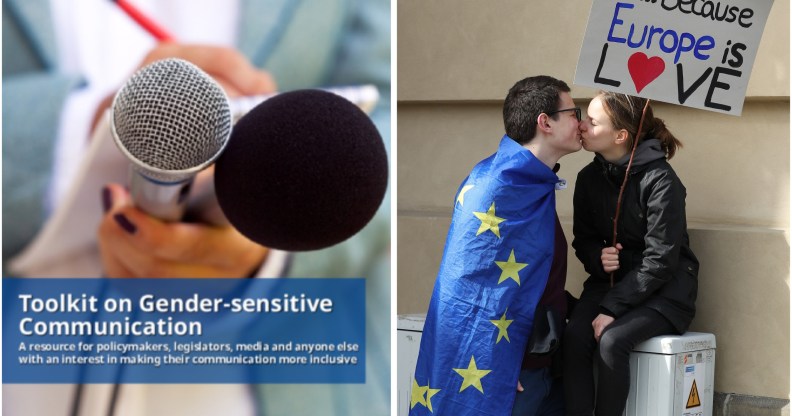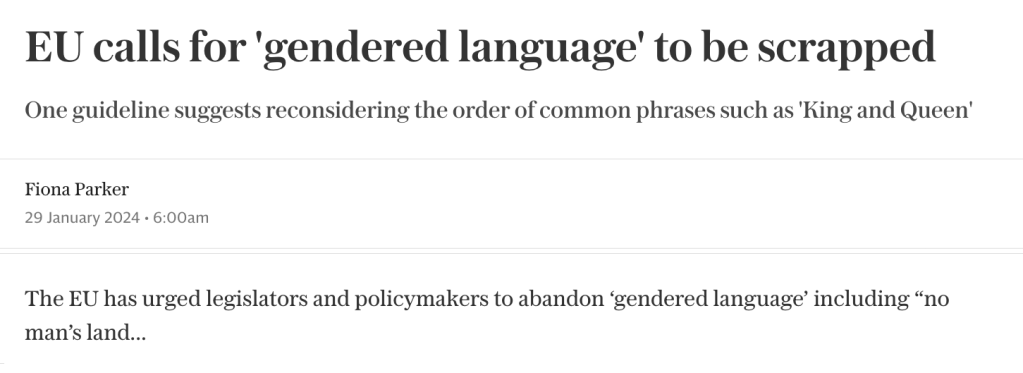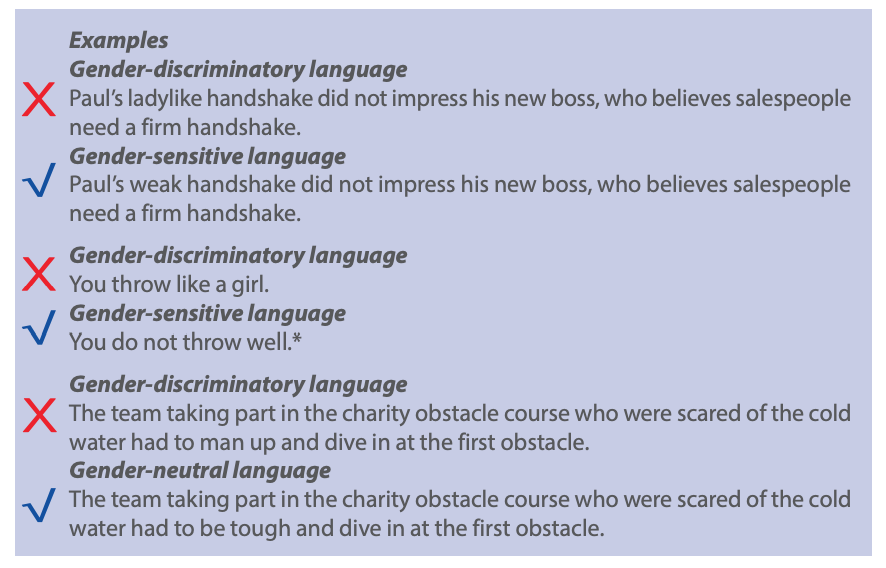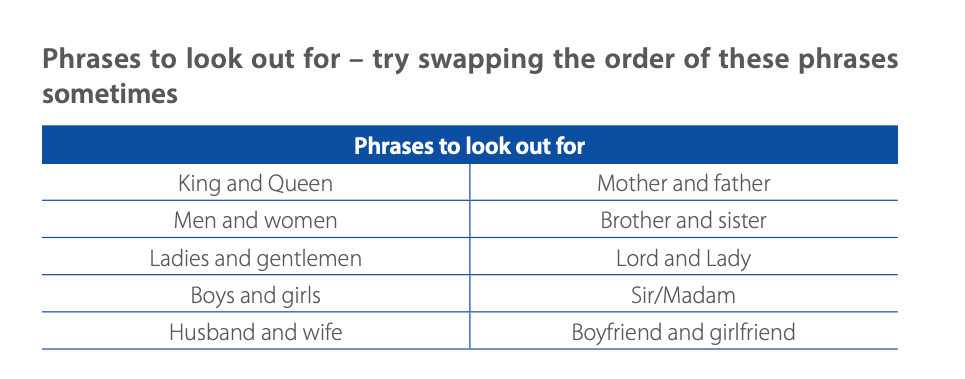The right-wing’s latest manufactured outrage? An EU inclusive language toolkit from 2019

The EU toolkit on gender-sensitive communication made the UK news today – but it was actually written in 2018/19 (EIGE/Getty)
Today (29 January), right-leaning UK news outlets the Telegraph and GB News both reported on a story about how the European Union has been criticised for a “new” inclusive gender initiative that is allegedly calling for legislators and policymakers to abandon “gendered language”.
The Telegraph led with: “EU calls for ‘gendered language’ to be scrapped“, while GB News titled their article (in their typical bombastic style): “‘Lie down in a dark room!’ EU ‘idiots’ slammed for demanding gender-neutral language in latest woke guidance”.
GB News and the Telegraph both made it clear that their articles were in response to “a 61-page document, titled ‘Toolkit on Gender-sensitive Communication’… compiled by The European Institute for Gender Equality.”
The issue? According to online records, the EU document in question was actually published in February 2019.
You can read a PDF version of the (very innocuous) document here. The copyright notification is even older than 2019, and reads: © European Institute for Gender Equality, 2018.

Much of the focus of the gender sensitive communication toolkit is on doing away with sexist and outdated language that unfairly minimises the role and importance of women in society.
Rather than calling for ‘gendered language to be scrapped’, the document’s actual aim is to act as “a resource for policymakers, legislators, media and anyone else with an interest in making their communication more inclusive”.
One example of the advice given in the report is to avoid using sexist phrases like “you throw like a girl.”

In the Telegraph article, the publication takes aim at the fact that “legislators, policymakers and the media are also advised by the toolkit to reconsider the order of common phrases such as ‘King and Queen’ or ‘brother and sister’ where the male of the pair is placed first.”
The section of the report in question reads:

The report goes on to say that the reason for doing this is to “recognise and challenge stereotypes,” to “be inclusive and avoid omission and making others invisible”, and “to be respectful and avoid trivialisation and subordination.”
Another section very mildly states: “There is nothing wrong with the phrase ‘boys and girls’ in itself, but when it is always said in this order it can become gender discriminatory, as it affects the cultural value assigned to each gender. Sometimes it is worthwhile to switch the order.”
The toolkit also offers tests and quizzes to help people spot gender-discriminatory language in texts, for example: “The Chocolate Foundation Board is looking for a new Chairman to take the helm and provide the strategic vision to move our organisation forward. He will be expected to participate actively…” saying that this type of job advert is likely to put off women from applying, and unnecessarily genders the role.
The Telegraph quotes Tory MP Nick Fletcher as ‘commenting on (this) latest language guidance’; Fletcher’s response is very focused on the here and now, not referencing the age of the European Union gender toolkit: “I think it’s nonsense, especially when there’s far more serious issues going on at the moment that we need to be concerned about.
“The EU needs to take a good hard look at themselves and think about what other problems are going on in the world at the moment.”
The Don Valley MP added: “We’ve got wars being waged, an energy crisis and a lot of countries are dealing with the same kind of problems that we are in the UK. Things like this are a waste of our time.”
Assuming that he isn’t already aware of the age of the document, it might comfort Mr Fletcher to hear that this European Union gender toolkit was actually written well before the pandemic, Russia’s invasion of Ukraine, the rise of the cost of living in the UK, and the current Middle East crisis.
PinkNews have reached out to the Telegraph, GB News and the European Institute for Gender Equality for comment.

